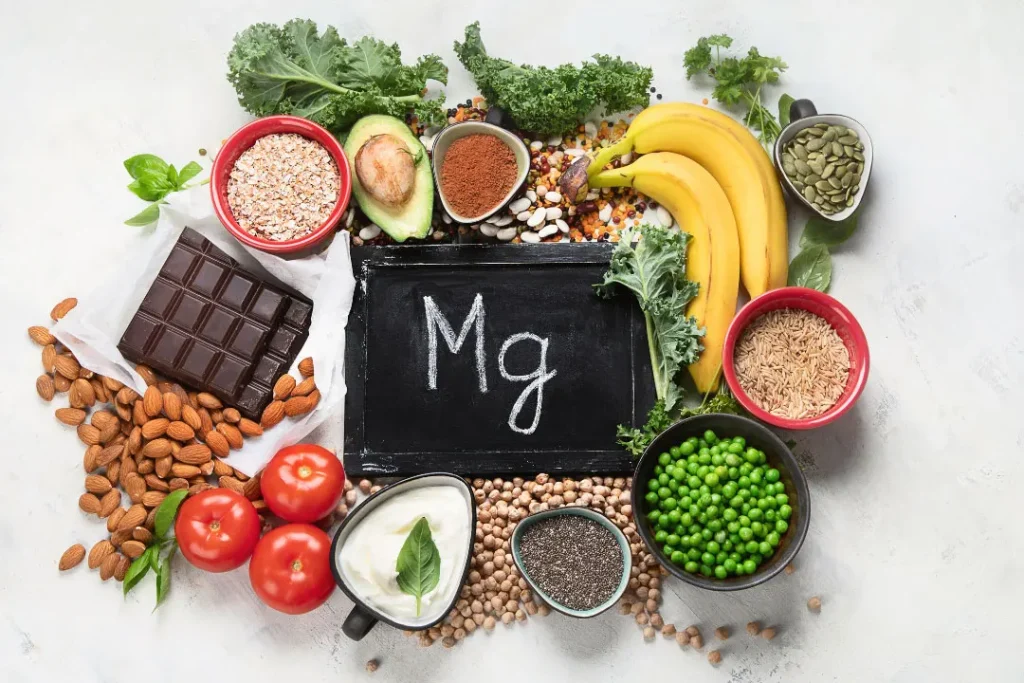The ackee (Blighia sapida) is a tropical fruit that originated in West Africa but is now widely grown in the Caribbean and other tropical locations throughout the world. It’s a common component in Caribbean cooking, and it’s frequently used to prepare classic dishes like ackee and saltfish. Ackee has gained popularity as a nutritional supplement in recent years due to its potential health advantages. This article will look at the origins of ackee, its health advantages, ideal dosage, adverse effects, probable substance interactions, and appropriate applications.
You May Also Like:
DELTA BrainLuxury™ Wins Best Sleep Support Supplement Product
Nature of Ackee
Ackee is a fruit in the soapberry family and it is technically known as Blighia sapida. The fruit grows on a medium-sized tree that can reach heights of up to 40 feet. When ripe, the fruit is pear-shaped and bright red, with a yellow fleshy aril that covers the seeds. The fleshy aril is the edible part of the fruit and is frequently used in cooking.
Ackee has a lot of nutrients, such as vitamins, minerals, and antioxidants. It is high in vitamin C, B6, thiamine, riboflavin, calcium, potassium, and iron. It also contains a lot of antioxidants which include carotenoids and flavonoids that can help protect your body from oxidative damage.

Health Benefits of Ackee
Ackee has been linked to a variety of health advantages, including better heart health, less inflammation, and better cognitive performance. The following are some of the specific health benefits of ackee.
Heart Health Improvements
One of the most important health benefits of ackee is its ability to boost heart health. Ackee is high in potassium, which is vital for blood pressure regulation and lowering the risk of heart disease. Potassium relaxes blood vessels and reduces the strain on the heart and thus aiding the prevention of hypertension and other cardiovascular diseases.
Aside from potassium, ackee provides other heart-healthy elements such as fiber and antioxidants. Fiber can help lower cholesterol levels and minimize the risk of heart disease, while antioxidants can help protect the heart from oxidative damage.
Reduced Inflammation
Ackee has also been demonstrated to have anti-inflammatory qualities, which may help to lessen the risk of chronic diseases like cancer, diabetes, and arthritis. Inflammation is the immune system’s natural response to infection or injury, but persistent inflammation can cause a variety of health problems.
Ackee includes chemicals that have been demonstrated to have anti-inflammatory properties such as quercetin, kaempferol, and rutin. These substances can aid in the reduction of inflammatory cytokines that induce inflammation in the body.
Cognitive Function Enhancement
Another potential advantage of ackee is that it can boost cognitive function. Ackee has elements that are beneficial to brain function which include vitamin B6, thiamine, and riboflavin. These nutrients can aid in the enhancement of memory, concentration, and overall cognitive performance.
Aside from nutrients, ackee contains substances such as phenolic acids and flavonoids, which have been found to have neuroprotective properties. These substances may also assist to protect the brain from oxidative damage and inflammation, which can help maintain brain health and reduce cognitive decline.

Chemistry of Ackee
The bioactive chemicals found in ackee fruit are responsible for its possible health advantages. Amino acids, fatty acids, flavonoids, carotenoids, and alkaloids are examples of these substances.
Hypoglycin A, one of the most prominent alkaloids found in ackee, is responsible for the poisonous effects of unripe ackee fruit. However, when the fruit is correctly cooked, the toxicity is removed, and the remaining alkaloids, such as methylene-cyclopropyl glycine, have the potential to be beneficial to health.
Ackee also has a high potassium content, which can help to regulate blood pressure and enhance heart health. As previously mentioned, ackee is also high in vitamins and minerals, including vitamin C, vitamin B6, magnesium, and calcium. Physiological Mechanisms of Action of Ackee
Although much of the physiological mechanisms of action of ackee remained undiscovered, research indicates that the bioactive chemicals present in the fruit may have a variety of health-promoting effects.
One of the ackee’s primary mechanisms of action is its capability to reduce inflammation in the body. Inflammation is a normal immune reaction to injury or infection, but persistent inflammation can lead to a variety of health issues such as heart disease, diabetes, and cancer. As mentioned, carotenoids and flavonoids are bioactive chemicals found in ackee that have been demonstrated to have anti-inflammatory properties, which may help lessen the risk of several health issues.
Ackee may also be beneficial to cognitive function. Some of the alkaloids present in ackee have been demonstrated to have a structure comparable to acetylcholine, a neurotransmitter important in learning and memory. This shows that ackee could improve cognitive function by altering neurotransmitter activity in the brain.
Furthermore, the high potassium content of ackee may aid with blood pressure regulation by counteracting the effects of salt in the diet. This can assist to lower the risk of hypertension and other cardiovascular issues.
While additional research is required to completely understand the physiological mechanisms of action of the components from ackee, the fruit has shown promise for a variety of health advantages.

Optimal Dosage of Ackee
The ideal ackee dosage will be determined by a variety of criteria, including age, health status, and individual tolerance. When consumed in moderation, ackee is generally regarded as harmless; however, over-intake can lead to detrimental health issues.
Ackee is primarily used as a dietary supplement in the form of capsules or extracts. The dosage of ackee supplements will differ depending on the product and the manufacturer’s guidelines.
If you have any underlying health concerns or are taking any medications, it is critical to follow the manufacturer’s recommended dose directions and to consult with a healthcare practitioner before taking ackee supplements.
It is critical for those who consume fresh ackee fruit to ensure that the fruit is ripe and properly cooked. Unripe ackee contains a toxin known as hypoglycin which, in sufficient quantities, can cause vomiting, diarrhea, and even death. To remove the poison, the fruit must be completely matured and properly boiled before ingestion.
Side Effects of Ackee
Jamaican vomiting sickness, induced by the toxin hypoglycin, is one of the most significant side effects of ackee ingestion. Symptoms of Jamaican vomiting illness include vomiting, diarrhea, seizures, and even coma. In severe circumstances, it can be lethal. To avoid this, make sure the ackee fruit is ripe and thoroughly boiled before eating it.
Other potential ackee side effects include allergic reactions, stomach problems, and headaches. It is critical to get medical attention if you develop any negative side effects after taking ackee.

Potential Substance Interactions with Ackee
Ackee may interact with other substances, including prescriptions and supplements. If you are taking any drugs or supplements, you should see your doctor before taking ackee supplements or eating ackee fruit.
Because it contains high levels of potassium, ackee can interact with drugs such as blood pressure medications. Some of the chemicals in ackee may impact liver function and therefore may interact with drugs that are metabolized by the liver.
Responsible Uses of Ackee
To utilize ackee ethically, make sure the fruit is ripe and well-boiled before eating it. It is critical to follow the manufacturer’s recommended dose directions and consult with a healthcare expert before taking ackee supplements.
It is also critical to be aware of potential side effects and drug interactions, and to seek medical assistance if any adverse consequences arise.

Ackee: Conclusion
Ackee fruit contains a high concentration of vitamin A, potassium, and also vitamin C. The most significant health benefits brought about by ackee are improvements in heart health, reduced inflammation, and enhancements in cognitive ability. When the potassium level in the body is increased by the consumption of sufficient ackee, it helps with blood vessel dilation which eases the burden of the heart in pumping blood to each part of the body. You must remember that advice from healthcare providers is significant, especially when incorporating ackee supplements into your supplement regimen. You should seek ackee supplements of high purity that are sourced only from reputable and trustable sellers.
References:
- In Vitro Antioxidant and Anti-inflammatory Activities of Ethanol Stem-bark Extract of Blighia sapida K.D. Koenig. Link:
https://www.ncbi.nlm.nih.gov/pmc/articles/PMC9091874/
- The Jamaican Vomiting Sickness: A Review. Transactions of the Royal Society of Tropical Medicine and Hygiene. Link:
https://pubmed.ncbi.nlm.nih.gov/6488562/
Important Note: The information contained in this article is for general informational purposes only, and should not be construed as health or medical advice, nor is it intended to diagnose, prevent, treat, or cure any disease or health condition. Before embarking on any diet, fitness regimen, or program of nutritional supplementation, it is advisable to consult your healthcare professional in order to determine its safety and probable efficacy in terms of your individual state of health.
Regarding Nutritional Supplements Or Other Non-Prescription Health Products: If any nutritional supplements or other non-prescription health products are mentioned in the foregoing article, any claims or statements made about them have not been evaluated by the U.S. Food and Drug Administration, and such nutritional supplements or other health products are not intended to diagnose, treat, cure, or prevent any disease.


